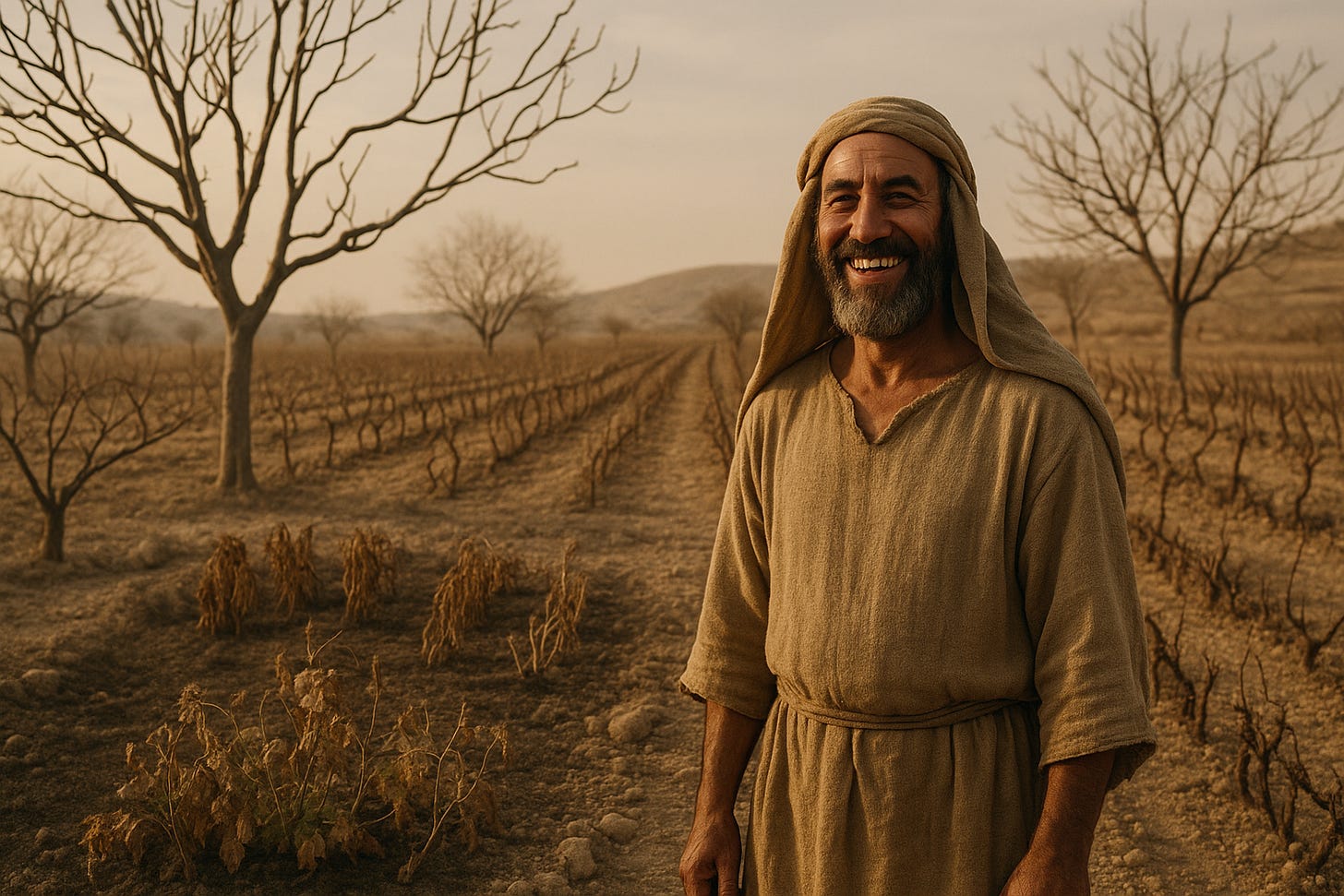I will rejoice in the Lord
Habakkuk 3:17-18 - Regardless of how dire things may be and how bleak the future may appear, believers should find their joy and hope in the Lord.
Image generated by ChatGPT (OpenAI) using the DALL·E model.
“Though the fig tree does not bud and there are no grapes on the vines, though the olive crop fails and the fields produce no food, though there are no sheep in the pen and no cattle in the stalls, yet I will rejoice in the Lord, I will be joyful in God my Savior.”
Habakkuk 3:17-18 NIV
Most of us, even those who consider themselves to be faithful believers, tend to be glum from time to time. When things turn bad, we don’t turn to God, but instead sit around frowning and complaining. While these verses from the prophet Habakkuk were written for an audience that was probably like our joyful farmer in the image above, they still have relevance for today’s Christians.
Perhaps you lost your job, your spouse just left you, your kids have turned against you, the dog has some unknown malady that is running up expensive vet bills, and your sole means of transportation — that old truck — has decided to give up the ghost. That is today’s suburban equivalent to being a farmer in Habakkuk’s time who is having a really bad time with dead trees and vines, no crops coming in, and no livestock.
The prophet Habakkuk was either seeing a vision or the reality of the Judean countryside ravaged by the invading Babylonians or a plague of locusts. Regardless of the cause of the destruction, Habakkuk could still “rejoice in the Lord” and “be joyful in God my Savior.”
A rather normal human response to difficult trials is to think “Why is God, who is so powerful and merciful, not helping me out?” Habakkuk, who as a prophet was hearing from God on a regular basis, knew that this wasn’t the question to be asking or the attitude to have. In his thinking, he knew that God is strong and powerful, and also knew that the desperate situation was probably happening because the people deserved it! That wasn’t going to keep Habakkuk from continuing to praise God and even rejoice at His presence.
How could he do this? Habakkuk knew that although something had changed — with dead crops and zero livestock, that was obvious — but God had not changed, and for that he could be joyful. The prophet also knew from experience that bad situations are always temporary, and that God would eventually come through for His people.
Habakkuk realized that his personal happiness was dependent on a choice he made: to find joy in the Lord. He certainly knew that things were bad for his country, but his choice demonstrated his deep trust in God’s sovereign power and goodness. Saying that “I will be joyful in God my Savior”, the prophet knew that salvation wasn’t just a future hope but a present reality for himself through his personal relationship with God.
In our time, we can be joyful of our salvation through Jesus Christ. Regardless of how dire things may be and how bleak the future may appear, believers should find their joy and hope in the Lord.
Heaven On Wheels Daily Prayer:
Lord, despite the challenges I face, I choose to rejoice in You and find joy in Your salvation, trusting that You are my strength and hope. AMEN.



